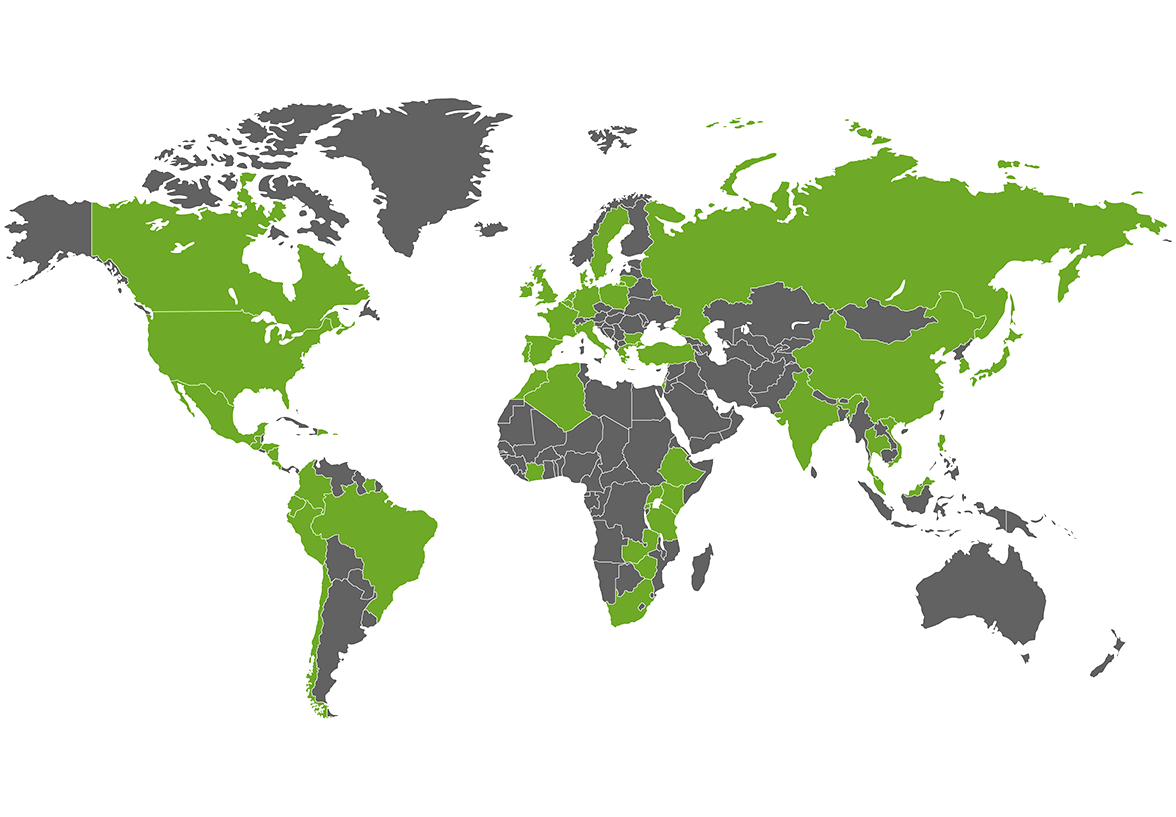This website uses cookies so that we can provide you with the best user experience possible. Cookie information is stored in your browser and performs functions such as recognising you when you return to our website and helping our team to understand which sections of the website you find most interesting and useful.
The horticultural sector worldwide is being hit hard by the outbreak of the corona virus. Flowers and plants end up in the container and it is difficult to obtain materials for production. In addition, it is hard to deliver orders. Sometimes there is also good news: in some countries, people join forces to help the sector. Our coordinators abroad talk about the situation in their region.
 Vivian Pellens – Germany
Vivian Pellens – Germany
Floricultural companies are struggling to sell their products. Since we have federal states in Germany and each state can decide on guidelines, the situation within the country differs. In some federal states florists and even do-it-yourself stores are closed, while in other states florists are closed and do-it-yourself stores are open. This resulted in disagreement, because growers that are only a few kilometers apart, but located in different federal states, have to deal with different rules. All in all, the sector is losing a lot of money. Owners and workers are very concerned and many are on the verge of bankruptcy. While other sectors can apply for government financial aid, many growers cannot because the requirements do not reflect their situation. We hope that the government will find the time to adjust the requirements for the various companies and that the shops will open after Easter. ”
“Horticultural companies are now trying to find new ways to sell their products. Many have started direct contactless sales in, for example, their parking lot. It works well, also thanks to the nice weather. We also notice that people want to help companies in their neighborhood. Some growers have also opened online stores, but that only makes sense for special varieties, not for mass production. Many people in the green sector are using social media to make people aware of the situation and the German horticultural associations are distributing press releases. Companies also use Facebook and YouTube themselves. An employment agency for ‘green jobs’ has started a Facebook group called ‘Support your gardener and the garden sector in times of corona’ where growers can share their ideas and promote online stores.”
Antonio Fracassi – Italy
“If you are talking about the Italian situation regarding the corona virus, we are mainly concerned with reducing social contact. Only essential activities are allowed under certain conditions. The horticultural sector is extremely affected by export restrictions and deliveries are canceled. The worst is the case with seasonal plants, the vast majority of which are destroyed. The Italian government has taken extreme measures to repair the losses, but time has to show to what extent it is enough for growers to survive the crisis.”
“To help the floriculture sector in Italy, I am involved in a scientific project. The aim of this project is to collect scientific evidence about the positive impact of flowers and plants on people, especially now that many are at home. In this way we try to convince the government to open garden centers and do-it-yourself shops. The state of mind in Italy is strange, but the will to survive is stronger!”

“The coronavirus now has a direct impact on the horticultural sector in Turkey. Unfortunately, the crisis coincided with the sales peak of flowers. We hear from our customers that most orders have already been canceled (even if orders have already been shipped). Meanwhile, growers and exporters are doing their utmost to maintain trade, which has also experienced difficulties due to quarantine procedures and the closing of borders abroad. Currently, the quality of flowers is highest, but canceled orders force growers to harvest at a slower rate and keep their flowers in cool rooms for as long as possible. A large amount of flowers has also been destroyed in hopes that conditions will return to normal. Production continues with adjustments in working conditions. In the domestic market, florists are usually closed and supermarkets are not included in the sales channels, because they prioritize the sale of fruit and vegetables.”
 René Rombouts – Spain and Portugal
René Rombouts – Spain and Portugal
“The situation in Spain and Portugal is comparable to Italy, especially Spain is in great crisis. Spaniards and Portuguese have to work from home as much as possible and when they make money: spring. I have called several companies and I find that the situation is serious: trucks are returning including the products they are supposed to deliver, export orders are canceled and local sales have stalled. Growers throw their products in the container on one side of the greenhouse and plant them again on the other side of the greenhouse for the next season. Without income, that requires a large financial buffer, which not everyone has. What I really like is that the Spanish company Floramedia has launched a campaign on social media: #AhoraFloresyPlantas. This means #nowFlowersandPlants. In this way they try to stimulate the sale of flowers and plants. MPS also supports the campaign. ”
Leen Klaassen – South America, Ecuador
“The floriculture sector in Ecuador has come to a complete standstill due to the corona virus. Many flowers from this region are exported and that is no longer possible, because all aircrafts are grounded. Nor is exportation by sea a possibility and it is not possible to obtain materials that are necessary for production. Not much is transported between the provinces either. This is expected to result in products becoming scarce and expensive. The Ecuadorian government will reassess the situation in two weeks.”
John McCaslin – United States
“This will be a critical week in the United States. Most Americans abide by health guidelines: they stay at home and keep their distance. The large stores are still open, because they have been labeled “essential”. They fulfill the contracts they have with the largest growers and supply the large garden centers. The situation is more challenging for smaller companies. However, the US government has decided to issue small loans to growers. I think these loans will help in the short term. The future is uncertain, but we remain optimistic.”
 Marie-Françoise Petitjean – France
Marie-Françoise Petitjean – France
“The situation in France is difficult, especially for the annual plant and cut flower growers, who achieve most of their sales between March and May. Other nurseries also have a sales problem, but at least they can cut the plants back and don’t have to throw everything away. On the trade side, florists and other businesses that sell to consumers are closed. They only sell by means of order, is delivery or pick-up. Many growers now sell directly to consumers. Garden centers that sell pet food and edible plants, such as kitchen plants and herbs, may remain open. So some orders do reach the stores. It has to be seen how much effect this yields, as the turnout among consumers remains low. For some growers, the lack of labor is also a problem: workers are at home because of illness, to take care of their children or because they are afraid and prefer to stay at home. ”
“Last night, President Macron announced that the lockdown will last until May 11. Although banks and companies have made a lot of public money available to help overcome the large drop in turnover, we expect many companies to go bankrupt. The interprofessional trading organization VAL’HOR has developed a web app to identify growers who sell flowers and plants to consumers. They also signed the international letter to the European Commission to apply for a large emergency fund.”
 Marie-Laure Doyen – East-Africa, Kenya
Marie-Laure Doyen – East-Africa, Kenya
“The export of cut flowers is more than 35 percent less than what you normally expect around this time. This is mainly because exports to Europe have dropped to almost zero. So growers are being hit hard. Despite the lack of sales, growers still need to water, fertilize and care for the flowers or the plant will deteriorate and produce no flowers in the future. There is also good news: in Kenya, a campaign was launched last week by the Kenya Private Sector Alliance (KEPSA) called “Flowers of Hope”. To support the sector, this organization wants to use Kenyan flowers as a symbol of solidarity and compassion. Moreover, they hope to save the jobs of thousands of employees and growers. Flowers are distributed among hospitals and other institutions. People who receive flowers are called upon to post a photo of themselves with #FlowersofHope.”

Esteban Diaz – Central America
“As you know, the borders are closed, so growers try to position themselves as much as possible on the local market. The challenge is that the local market is not large. Growers hope for a change in the situation because they depend on exports to the European market.”




